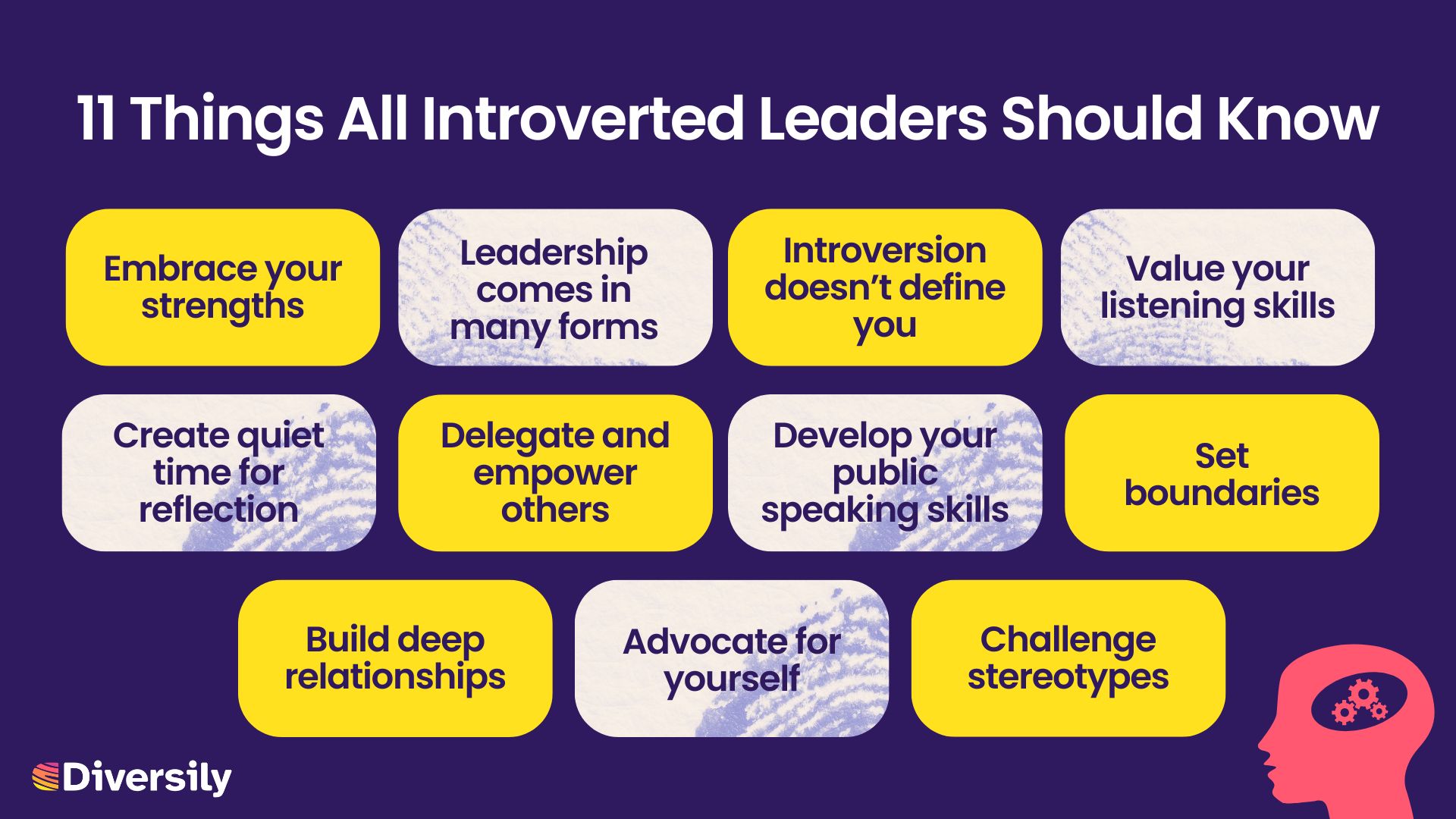What do Barak Obama, Mahatma Gandhi, Marissa Mayer and Albert Einstein all have in common?
They are all wildly successful introverted leaders.
Introverted leaders often navigate the leadership landscape differently from their extroverted counterparts. However, this difference is not a disadvantage. Many famous leaders, are introverts who have demonstrated that quiet strength and thoughtful reflection can be powerful tools in leadership.
Much like other minority groups, introverts often face societal biases and misconceptions. Extroversion is frequently seen as the ideal, especially in Western cultures, leading to a perception that introverts are less capable leaders.
This parallels the broader societal challenge where minority groups must work harder to prove their worth and capabilities in environments not designed for them. Recognising and addressing these biases is essential for creating a more inclusive and equitable society where all leadership styles are valued.
By understanding and leveraging your introverted nature, you can not only succeed but also redefine what it means to be an effective leader.
If you are an introverted leader or aspire to be one, here are eleven essential insights to help you leverage your unique strengths and navigate your leadership journey effectively.

1. Embrace Your Strengths
As an introvert, you possess a unique set of strengths. You likely excel in deep thinking, listening, and building meaningful connections. These qualities can foster a thoughtful and inclusive leadership style that prioritises understanding and empathy. Lean in to being more you, and don’t waste your energy trying to become something you are not.
2. Effective Leadership Comes in Many Forms
Leadership is not a one-size-fits-all role. Famous introverted leaders like Bill Gates and Marissa Myers have shown that introspection and careful consideration are invaluable traits in leadership. Embrace your style and recognise that effective leadership can take many forms.
Definitions and perceptions of introversion and extroversion can vary across cultures. For instance, Western cultures often value extroverted traits like assertiveness and sociability more highly, while some Eastern cultures may place greater value on the reflective and more reserved nature of introversion
4. Don't be defined by your introversion
It’s essential to remember that introversion is not a label that defines you, but rather a descriptor of where you gain your energy. Introverts often recharge through solitude and reflection, but this doesn’t mean they aren’t sociable or capable of engaging dynamically with others. Characteristics like being sociable, outgoing, or assertive are not exclusive to extroverts; they are traits that can be found in anyone, regardless of where they draw their energy from. There may be traits often associated with introverts that simply don’t apply to you, and those associated with extroversion that do. Embrace your individuality.
3. Value Your Listening Skills
Introverts can be excellent listeners, a skill that is often undervalued and underused, yet crucial in leadership. Listening to your team fosters trust, encourages open communication, and helps you understand the nuances of situations before making decisions.
5. Create Quiet Time for Reflection
Incorporate quiet time into your daily routine to recharge and reflect. This can help you process information, develop strategies, and make well-considered decisions. Schedule regular breaks to ensure you maintain your energy and focus.
6. Delegate and Empower Others
A leader’s role is to help set the stage, and then get the hell out of the way so the team can perform! Extroverted leaders who love being centre stage can often fall foul of taking away opportunities from their team members.
Introverted leaders often excel in empowering their team members. Delegate tasks and responsibilities, allowing others to take the spotlight. This not only leverages the strengths of your team but also builds a collaborative and motivated work environment.
Understanding introversion can also help leaders create environments that accommodate the needs of introverted team members. This might include providing opportunities for individual work, promoting written communication over verbal, and allowing time for reflection and independent problem-solving.
7. Develop Your Public Speaking Skills
While public speaking may not be your favourite way to spend time, it is a valuable skill for any leader. It’s also a great way to share all of your brilliant ideas. Practice and preparation can help you become more comfortable and confident.
Being in the limelight may not be your cup of tea. However instead of focusing in on yourself, instead think about your audience. Consider how you need to show up to get their attention, how you want to make them feel and what you want to inspire them to do. Taking the pressure off thinking about yourself can really help you deliver your message more effectively.
8. Set Boundaries
Introverts need time to recharge. Set boundaries to protect your energy, such as scheduling downtime after meetings or setting limits on your availability. This ensures you can maintain your well-being and continue to lead effectively.
Introverts can be a bit more guarded about sharing personal information or feelings, while some extroverts are happy to tell their life story to anyone who will listen.
However, building deeper connections with your team requires authenticity and a willingness to share a little bit of who you are and what you care about. By opening up and sharing your values, experiences, and passions, you can foster trust and create a more cohesive and motivated team.
Think intentionally to set boundaries on what you are willing to share. The more you start opening up with your team, the easier it will become.
9. Build Deep Relationships
Introverts often prefer deep, meaningful relationships over a large network of superficial connections. Focus on building strong relationships with key stakeholders, team members, and mentors. These connections can provide support, advice, and collaboration opportunities.
10. Advocate for Yourself
In a society that often values extroversion, it’s important to advocate for your leadership style and needs. Communicate your preferences and the ways you work best to your team and superiors. This can help create a more accommodating and productive work environment.
11. Challenge Stereotypes
Society often equates leadership with extroversion, which can marginalise introverted leaders. Challenge these stereotypes by demonstrating that effective leadership is not about being the loudest voice in the room but about thoughtful decision-making, empathy, and resilience.
Inclusive Leadership and Introversion
Inclusive leadership is about creating an environment where all team members feel valued, heard, and empowered. This leadership style is critical in today’s diverse workplaces.
Interestingly, unlike traditional western leadership models that favour extroverted traits, inclusive leadership values qualities found in both extroverts and introverts.
As an introverted leader, you may find that some aspects of inclusive leadership that others find challenging play to your strengths, while other elements might be more challenging for you. For example, your strong listening skills and deep thinking can naturally foster a culture of empathy and understanding, essential for inclusivity. Your tendency to build deep relationships can help create a sense of belonging among team members.
However, inclusivity also involves traits that extroverts may naturally excel at, such as fostering dynamic team interactions and being highly approachable and expressive. This balance of qualities underscores the importance of both introverted and extroverted leaders continuously working on their growth to improve inclusivity.
Introverted leaders can strive to be more open and visible, sharing personal insights and passions to connect with their teams, while extroverted leaders can enhance their listening and reflection skills. Both can benefit from understanding each other’s strengths and working together to create a more inclusive and supportive environment.
Ultimately, inclusive leadership is about leveraging the diverse strengths of all leaders to build a better, more inclusive world for everyone.
Introverted leaders have much to offer with their unique strengths and perspectives. By embracing your natural tendencies, leveraging your skills, and challenging societal stereotypes, you can lead effectively and authentically. Remember, leadership is not about conforming to a specific mould but about bringing your true self to the role and inspiring others through your actions and integrity.
By sharing your experiences, you too can become a role model for the power of introverted leadership.
Interested in developing your mindset, skillset and toolset as an Inclusive Leader? Learn more about the Diversily Inclusive Leadership Programme here.




